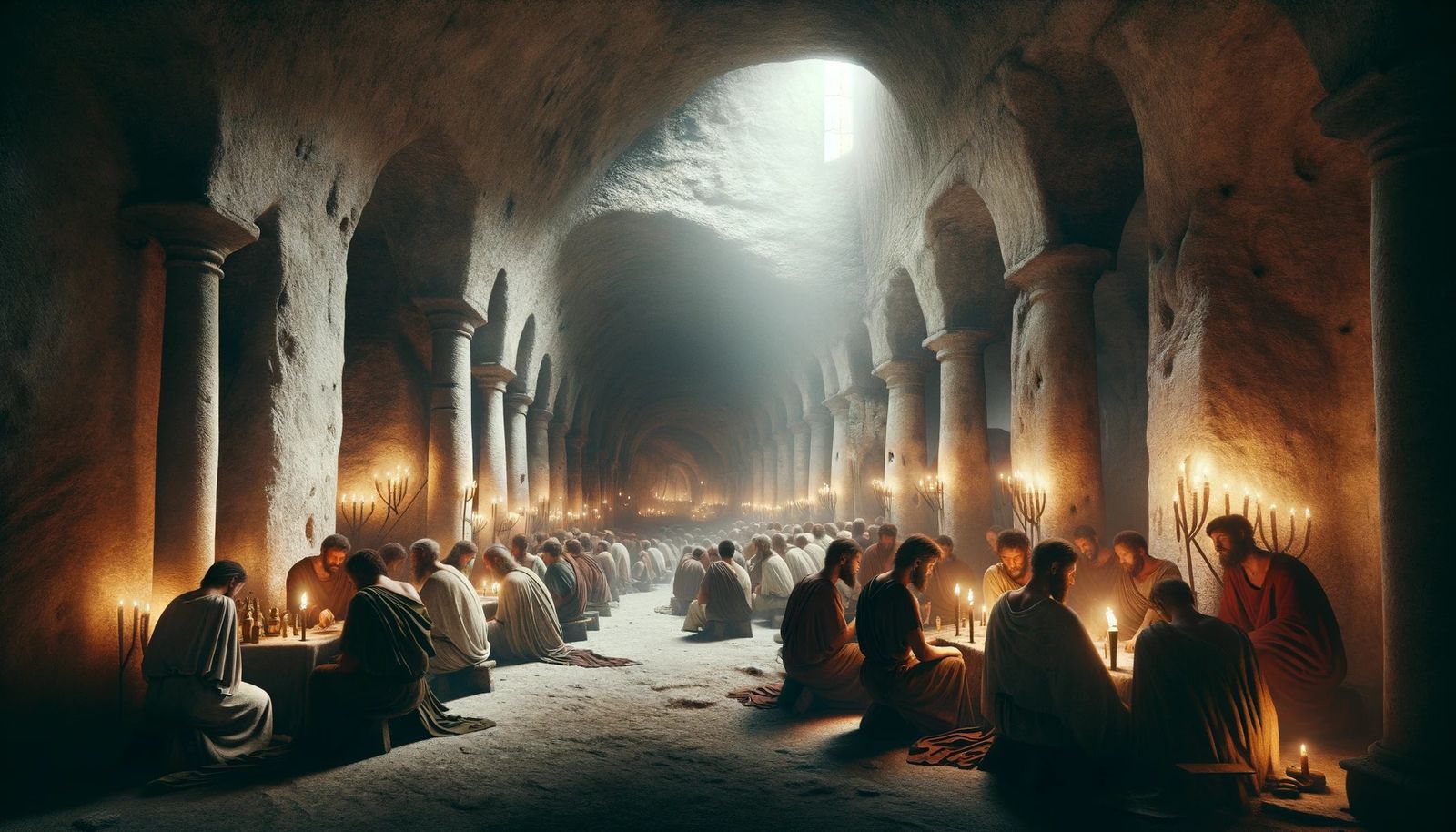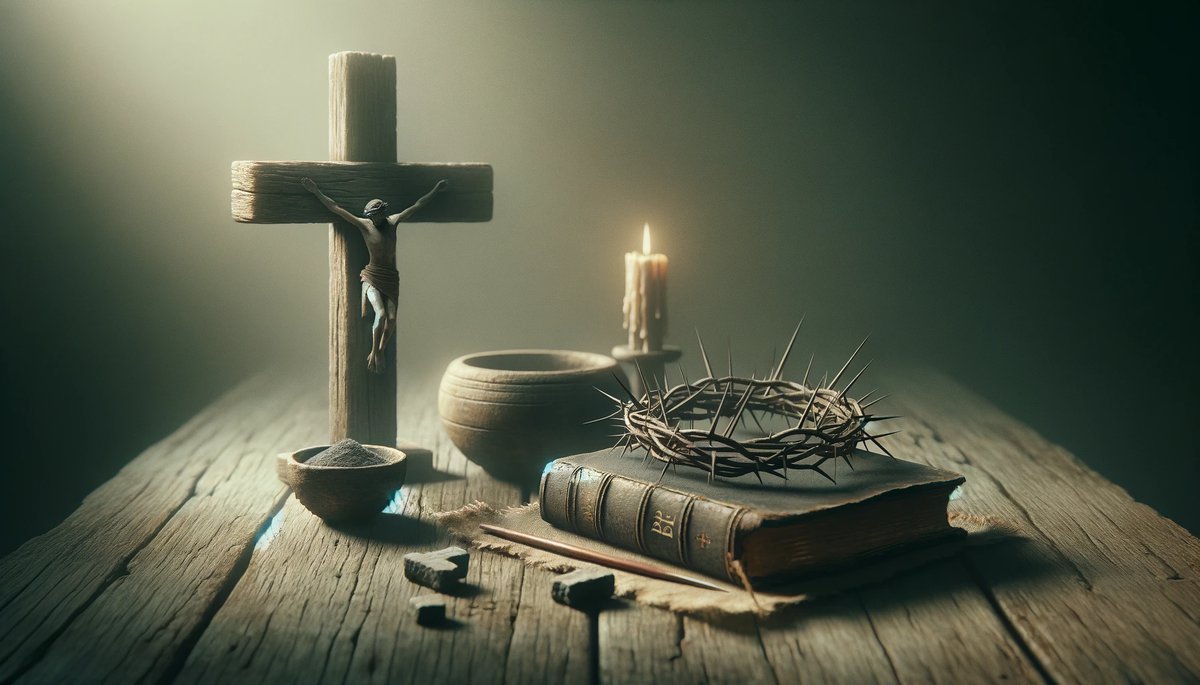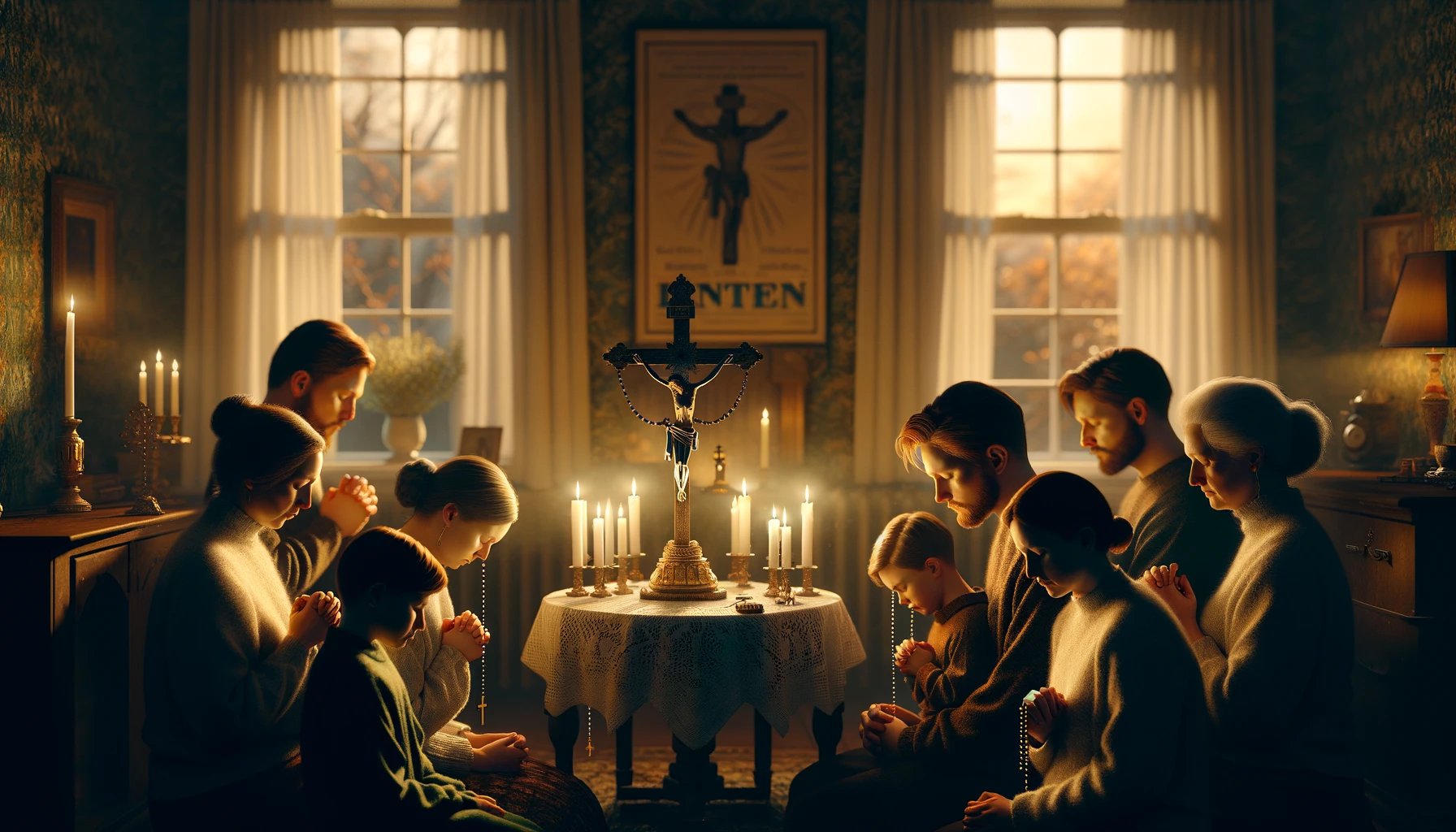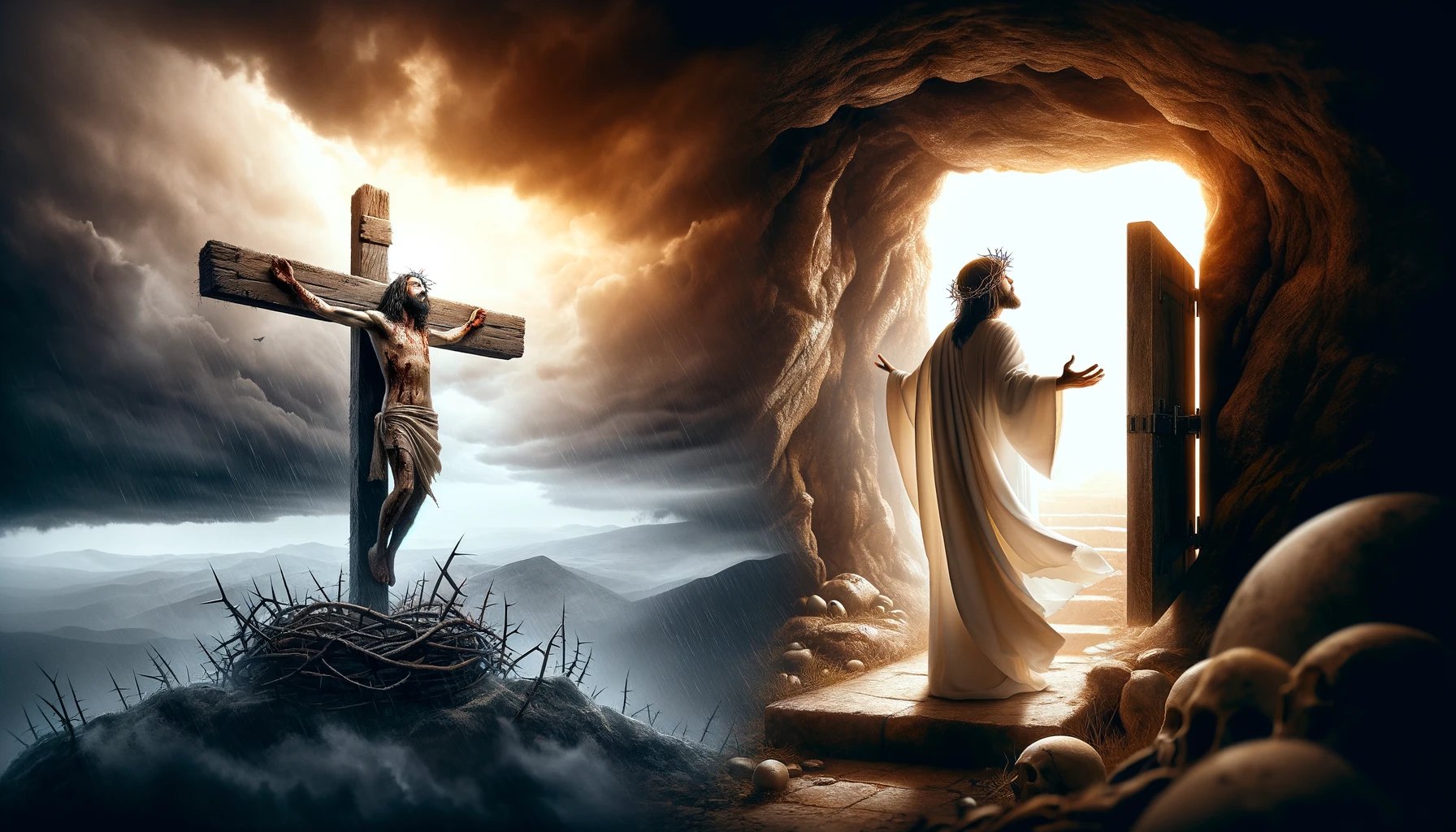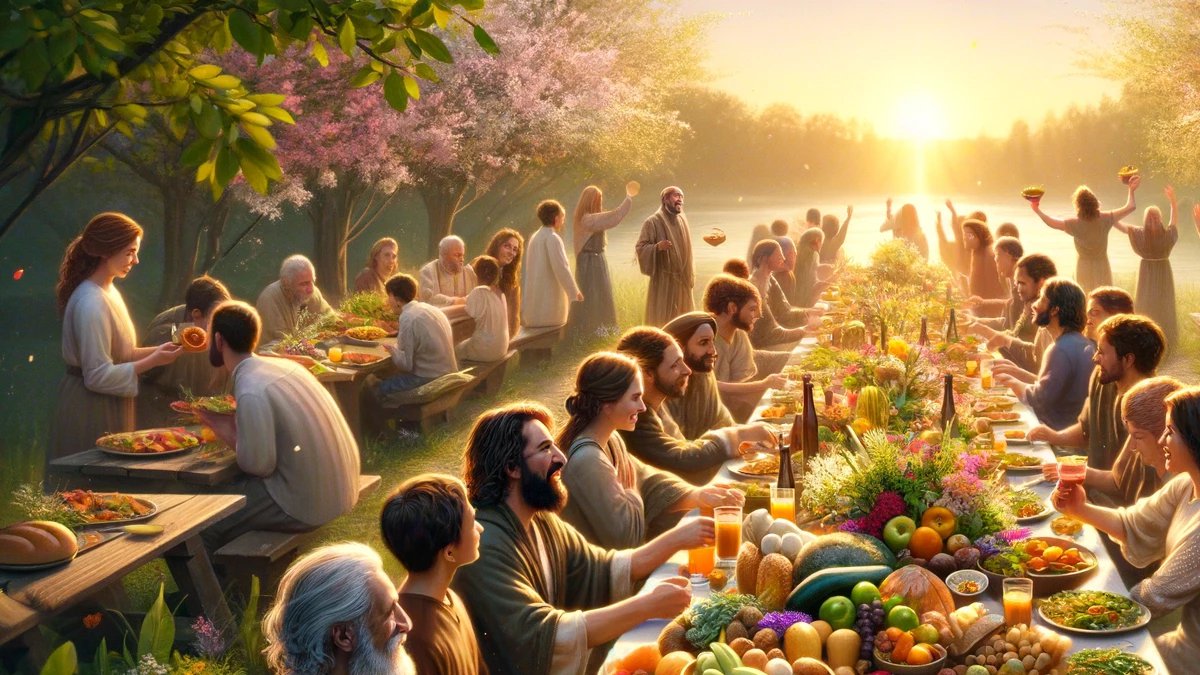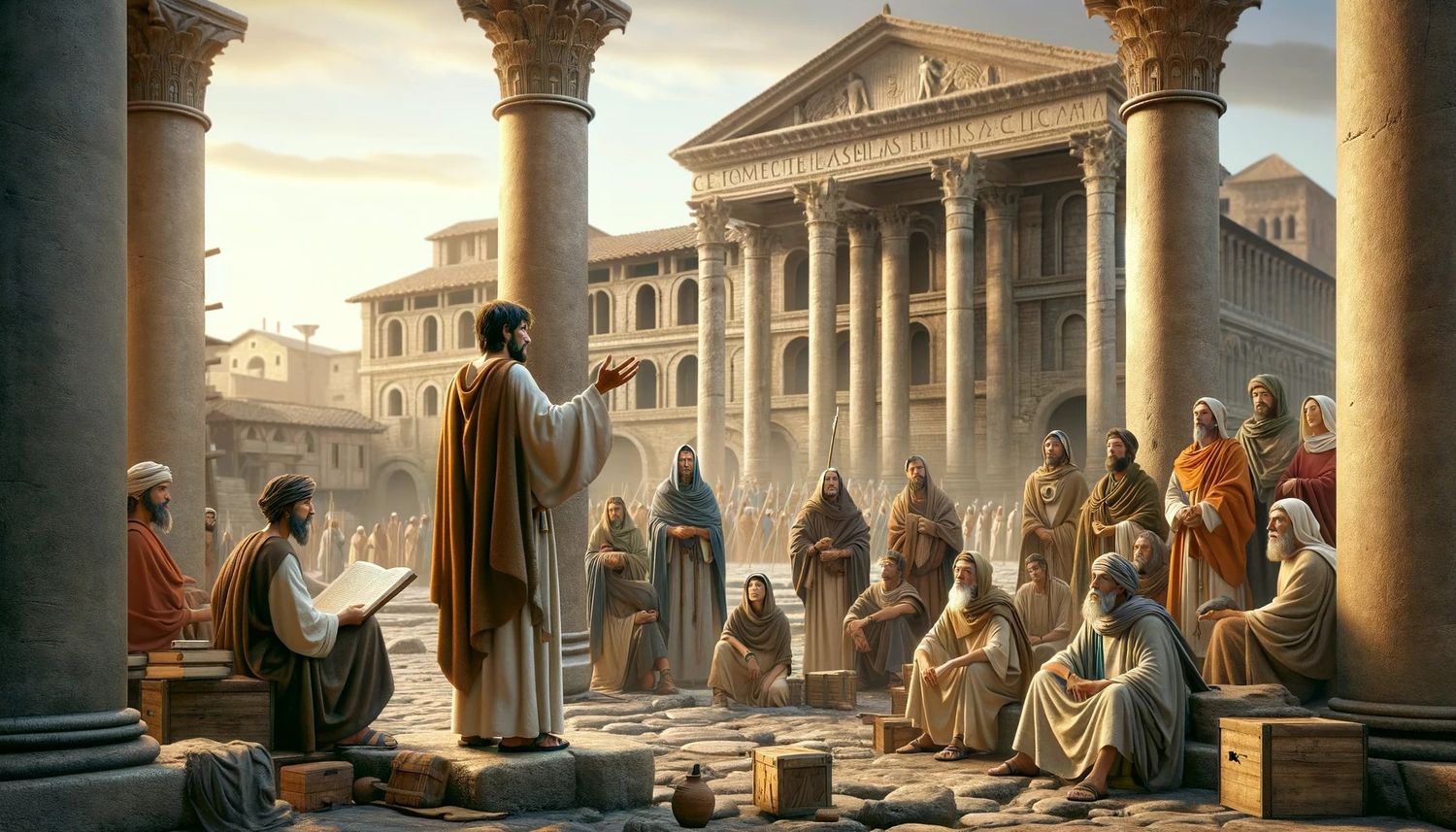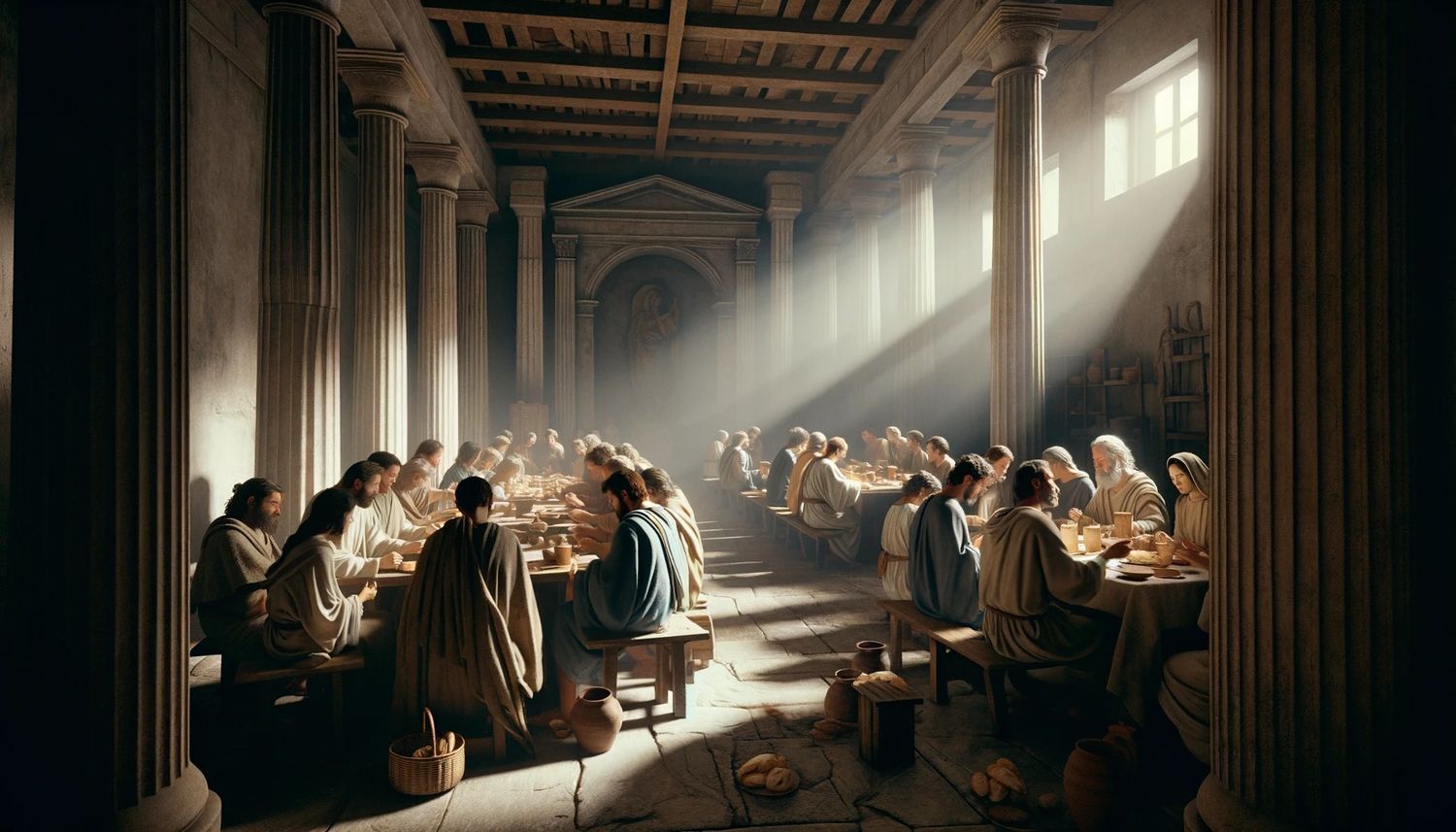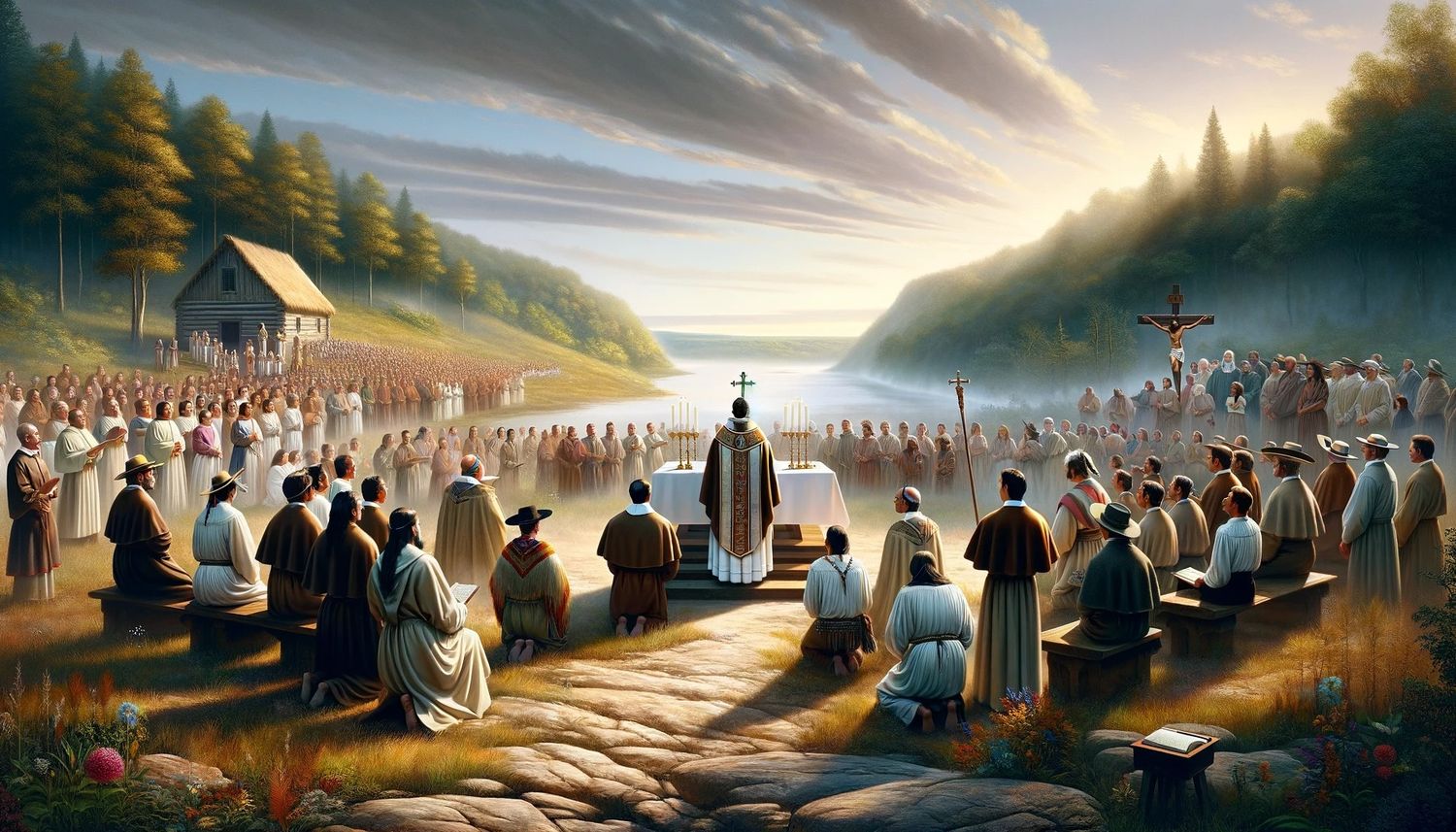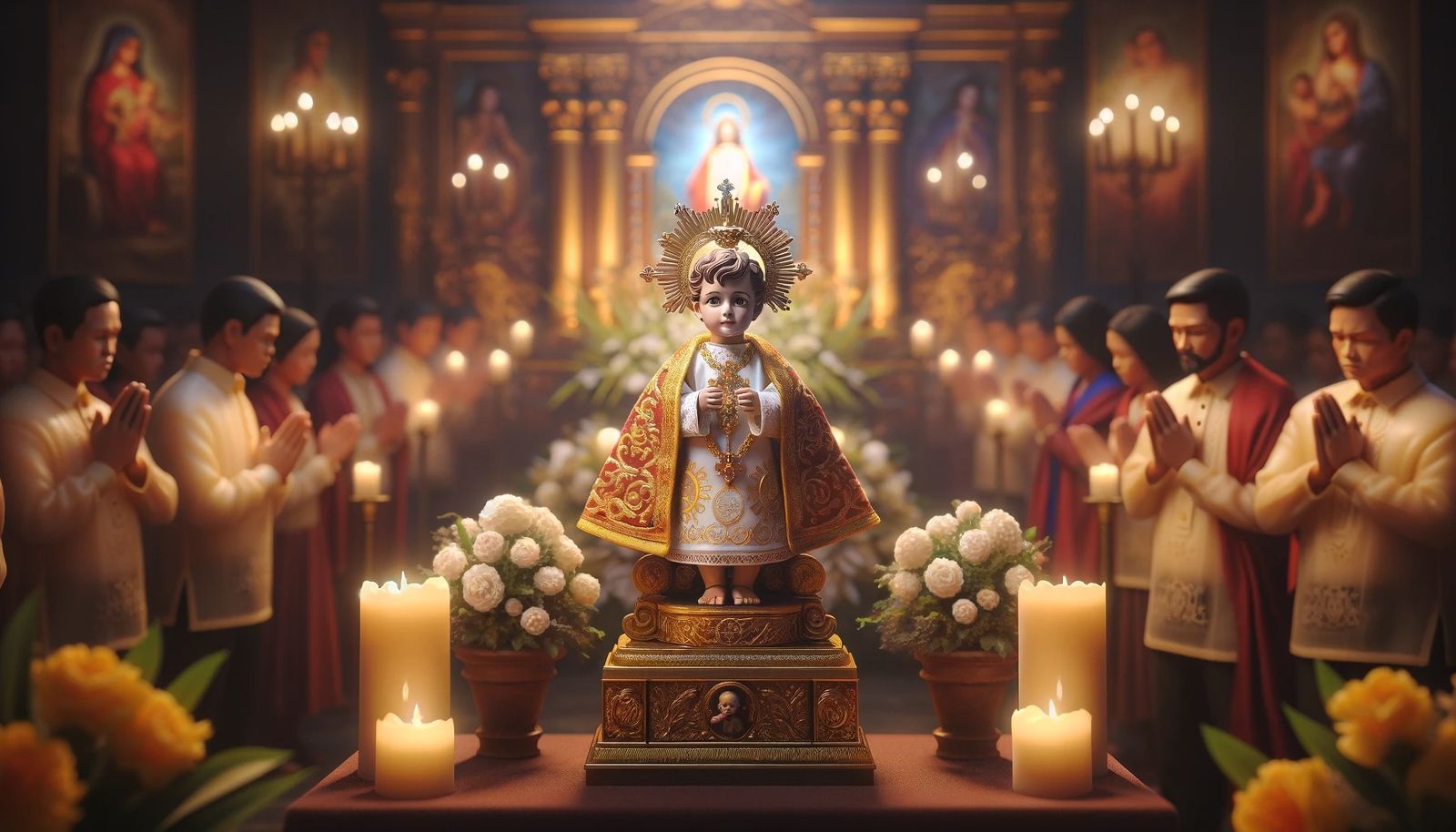Home>Special Themes>When Is Lent In Irish Catholicism?
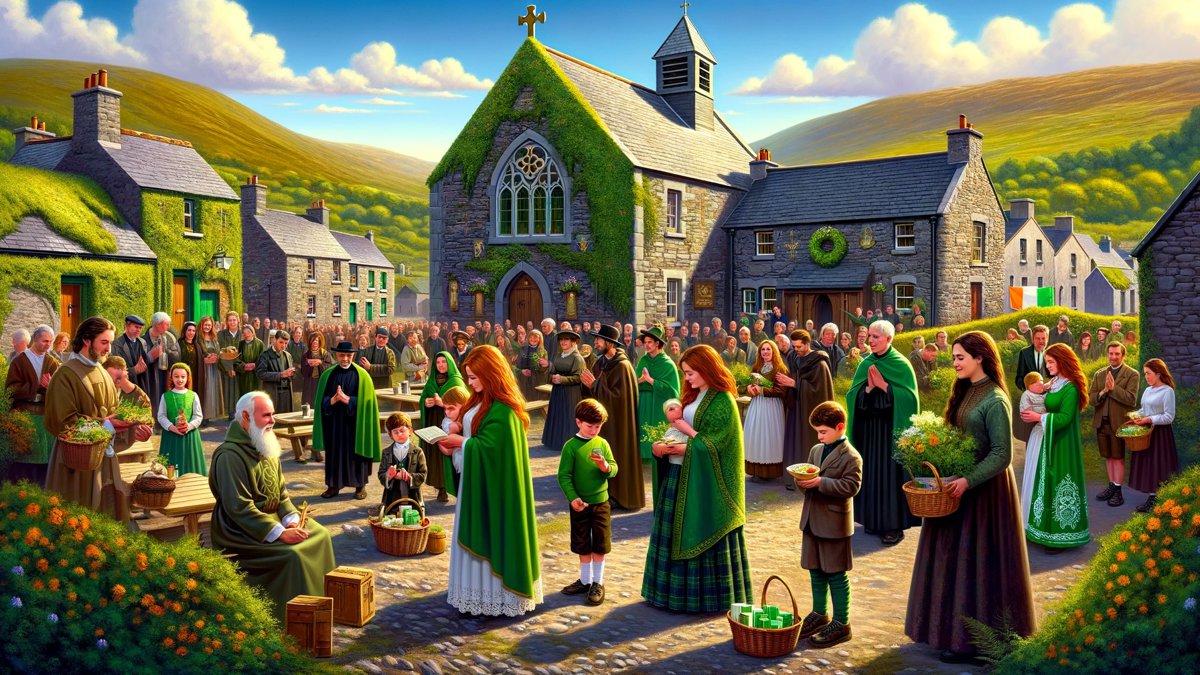

Special Themes
When Is Lent In Irish Catholicism?
Published: February 29, 2024
Jason DeRose, Managing Editor at Christian.net, uses his expertise in religion and journalism to deepen understanding of faith's societal impacts. His editorial leadership, coupled with a strong academic background, enriches the platform’s diverse content, earning him recognition in both journalism and religious circles.
Discover the significance of Lent in Irish Catholicism and its observance dates. Explore the special themes and traditions associated with this solemn period.
(Many of the links in this article redirect to a specific reviewed product. Your purchase of these products through affiliate links helps to generate commission for Christian.net, at no extra cost. Learn more)
Table of Contents
The Significance of Lent in Irish Catholicism
Lent holds a significant place in the hearts of Irish Catholics, marking a period of spiritual reflection, repentance, and preparation for the celebration of Easter. It is a time when the faithful are called to deepen their relationship with God through prayer, fasting, and almsgiving. The forty days of Lent symbolize the period Jesus spent fasting in the desert, enduring temptation and preparing for his ministry. For Irish Catholics, Lent is a solemn and sacred time to renew their faith and seek forgiveness for their sins.
-
Spiritual Reflection: Lent provides Irish Catholics with an opportunity for introspection and spiritual growth. It is a time to examine one's life, seek reconciliation with God, and strive for personal transformation. Through prayer and meditation, individuals reflect on their actions, seek forgiveness, and commit to living a more virtuous life.
-
Repentance and Reconciliation: Irish Catholics view Lent as a time for repentance and seeking reconciliation with God. The sacrament of reconciliation, also known as confession, plays a central role during this period. It allows individuals to confess their sins, receive absolution, and experience spiritual healing, paving the way for a renewed relationship with God.
-
Preparation for Easter: Lent serves as a preparatory period for the celebration of Easter, the most important event in the Christian calendar. By observing Lent, Irish Catholics prepare themselves spiritually to commemorate the resurrection of Jesus Christ. This preparation involves engaging in acts of self-discipline, prayer, and contemplation, leading to a deeper appreciation of the significance of Easter.
-
Fasting and Abstinence: Fasting and abstinence are integral to the Lenten observance in Irish Catholicism. These practices symbolize self-discipline and solidarity with the suffering of Christ. Irish Catholics abstain from meat on Ash Wednesday and Fridays during Lent, while also observing fasting on Ash Wednesday and Good Friday. These acts of self-denial serve as a reminder of the sacrifices made by Jesus and encourage a focus on spiritual nourishment over material indulgence.
-
Almsgiving and Charity: Lent inspires Irish Catholics to engage in acts of charity and almsgiving. This includes supporting those in need, contributing to charitable causes, and extending compassion to the less fortunate. By practicing generosity and compassion, individuals embody the teachings of Jesus and demonstrate solidarity with the marginalized members of society.
In essence, Lent holds profound significance in Irish Catholicism, guiding believers on a transformative journey of spiritual renewal, repentance, and preparation for the joyous celebration of Easter. It is a time of introspection, self-discipline, and acts of compassion, fostering a deeper connection with God and the Christian community.
Traditional Practices During Lent in Irish Catholicism
-
Ash Wednesday Observance: The commencement of Lent in Irish Catholicism is marked by the observance of Ash Wednesday. On this solemn day, Irish Catholics attend Mass and receive ashes on their foreheads in the sign of the cross, symbolizing repentance and mortality. The ashes, derived from the burning of palm branches blessed on the previous year's Palm Sunday, serve as a poignant reminder of human frailty and the need for spiritual renewal.
-
Lenten Fasting and Abstinence: Fasting and abstinence are deeply ingrained in the traditional practices of Irish Catholicism during Lent. The faithful abstain from consuming meat on Ash Wednesday and all Fridays throughout Lent, while also observing fasting on Ash Wednesday and Good Friday. These acts of self-denial are seen as a means of spiritual discipline, aligning believers with the sacrificial nature of Christ's journey and fostering a sense of solidarity with those who suffer.
-
Prayer and Reflection: Lent is a time of intensified prayer and reflection for Irish Catholics. Many individuals participate in daily Mass, the Stations of the Cross, and other devotional practices to deepen their spiritual connection. The Lenten season offers a unique opportunity for believers to engage in contemplative prayer, seeking guidance, strength, and inner transformation as they prepare for the celebration of Easter.
-
Lenten Sacrifices: In Irish Catholic tradition, Lent often involves making personal sacrifices as a form of spiritual devotion. This may include giving up certain luxuries or indulgences, such as sweets, alcohol, or entertainment, as a way of focusing on the spiritual significance of the season. By embracing these sacrifices, individuals aim to emulate Christ's selflessness and demonstrate their commitment to living a more virtuous and disciplined life.
-
Acts of Charity and Almsgiving: The spirit of generosity and compassion is exemplified through acts of charity and almsgiving during Lent. Irish Catholics are encouraged to support charitable causes, volunteer their time, and extend assistance to those in need. This practice reflects the teachings of Jesus, emphasizing the importance of caring for the marginalized and vulnerable members of society. By engaging in acts of charity, believers embody the spirit of Lent and express their solidarity with the less fortunate.
-
Lenten Retreats and Pilgrimages: Many Irish Catholics participate in Lenten retreats or pilgrimages as a means of deepening their spiritual journey. These retreats provide a dedicated time for prayer, reflection, and spiritual growth, allowing individuals to detach from the distractions of daily life and focus on their faith. Pilgrimages to sacred sites or shrines hold special significance during Lent, offering believers an opportunity for profound spiritual encounters and renewal.
In summary, the traditional practices observed during Lent in Irish Catholicism encompass a rich tapestry of spiritual disciplines, self-examination, and acts of compassion. These customs serve to guide believers on a transformative journey of faith, fostering a deeper connection with God and the Christian community as they prepare for the joyous celebration of Easter.
The Lenten Calendar in Irish Catholicism
-
Ash Wednesday: The Lenten calendar in Irish Catholicism commences with Ash Wednesday, a day of solemn observance and reflection. On this day, Irish Catholics attend Mass and receive ashes on their foreheads as a visible sign of repentance and mortality. The ashes, derived from the burning of palm branches blessed on the previous year's Palm Sunday, serve as a poignant reminder of human frailty and the need for spiritual renewal.
-
Fasting and Abstinence: Throughout the Lenten calendar, Irish Catholics adhere to the practice of fasting and abstinence on specific days. Ash Wednesday and Good Friday are designated as days of fasting, during which individuals abstain from consuming meat and partake in modest meals. Additionally, all Fridays during Lent are marked by abstinence from meat, symbolizing self-discipline and solidarity with the suffering of Christ.
-
Stations of the Cross: The Lenten calendar features the observance of the Stations of the Cross, a devotional practice that commemorates the events leading to Jesus' crucifixion. Irish Catholics participate in this solemn ritual, reflecting on the profound sacrifice of Christ and the redemptive power of his journey to Calvary. The Stations of the Cross serve as a poignant reminder of the suffering endured by Jesus for the salvation of humanity.
-
Lenten Retreats and Pilgrimages: Many Irish Catholics engage in Lenten retreats and pilgrimages as part of their spiritual journey. These retreats provide a dedicated time for prayer, reflection, and spiritual growth, allowing individuals to detach from the distractions of daily life and focus on their faith. Pilgrimages to sacred sites or shrines hold special significance during Lent, offering believers an opportunity for profound spiritual encounters and renewal.
-
Holy Week: The culmination of the Lenten calendar is Holy Week, a period of intense spiritual significance for Irish Catholics. Holy Week begins with Palm Sunday, commemorating Jesus' triumphant entry into Jerusalem, and leads into the solemn observance of Maundy Thursday, Good Friday, and Holy Saturday. These days are marked by special liturgical services, including the Mass of the Lord's Supper, the Veneration of the Cross, and the Easter Vigil, culminating in the celebration of the resurrection on Easter Sunday.
-
Easter Triduum: The Easter Triduum, encompassing Holy Thursday, Good Friday, and Holy Saturday, holds a central place in the Lenten calendar. Irish Catholics participate in liturgical ceremonies that commemorate the passion, death, and resurrection of Jesus Christ. These solemn observances provide a profound opportunity for believers to engage in prayer, reflection, and communal worship, culminating in the joyous celebration of Easter.
In essence, the Lenten calendar in Irish Catholicism unfolds as a journey of spiritual preparation, self-examination, and devotion, leading believers through a series of sacred observances that culminate in the celebration of the resurrection of Jesus Christ. This calendar serves as a guide for the faithful, fostering a deeper connection with their faith and the communal traditions of the Church.
Lenten Observances and Customs in Irish Catholicism
-
Ash Wednesday Observance: The Lenten observances and customs in Irish Catholicism commence with the solemn observance of Ash Wednesday. On this day, Irish Catholics attend Mass and receive ashes on their foreheads in the sign of the cross, symbolizing repentance and mortality. The ashes, derived from the burning of palm branches blessed on the previous year's Palm Sunday, serve as a poignant reminder of human frailty and the need for spiritual renewal.
-
Fasting and Abstinence: Fasting and abstinence are integral to the Lenten observance in Irish Catholicism. Ash Wednesday and Good Friday are designated as days of fasting, during which individuals abstain from consuming meat and partake in modest meals. Additionally, all Fridays during Lent are marked by abstinence from meat, symbolizing self-discipline and solidarity with the suffering of Christ.
-
Stations of the Cross: The Lenten observances in Irish Catholicism include the solemn practice of the Stations of the Cross. This devotional ritual commemorates the events leading to Jesus' crucifixion, inviting Irish Catholics to reflect on the profound sacrifice of Christ and the redemptive power of his journey to Calvary. The Stations of the Cross serve as a poignant reminder of the suffering endured by Jesus for the salvation of humanity.
-
Lenten Retreats and Pilgrimages: Many Irish Catholics engage in Lenten retreats and pilgrimages as part of their spiritual journey. These retreats provide a dedicated time for prayer, reflection, and spiritual growth, allowing individuals to detach from the distractions of daily life and focus on their faith. Pilgrimages to sacred sites or shrines hold special significance during Lent, offering believers an opportunity for profound spiritual encounters and renewal.
-
Holy Week Observances: The culmination of Lenten observances in Irish Catholicism is marked by the intense spiritual significance of Holy Week. This period begins with Palm Sunday, commemorating Jesus' triumphant entry into Jerusalem, and leads into the solemn observance of Maundy Thursday, Good Friday, and Holy Saturday. These days are marked by special liturgical services, including the Mass of the Lord's Supper, the Veneration of the Cross, and the Easter Vigil, culminating in the celebration of the resurrection on Easter Sunday.
-
Easter Triduum: The Easter Triduum, encompassing Holy Thursday, Good Friday, and Holy Saturday, holds a central place in the Lenten observances of Irish Catholicism. Irish Catholics participate in liturgical ceremonies that commemorate the passion, death, and resurrection of Jesus Christ. These solemn observances provide a profound opportunity for believers to engage in prayer, reflection, and communal worship, culminating in the joyous celebration of Easter.
In essence, the Lenten observances and customs in Irish Catholicism encompass a rich tapestry of spiritual disciplines, self-examination, and acts of devotion, leading believers through a series of sacred practices that culminate in the celebration of the resurrection of Jesus Christ. These observances serve as a guide for the faithful, fostering a deeper connection with their faith and the communal traditions of the Church.

